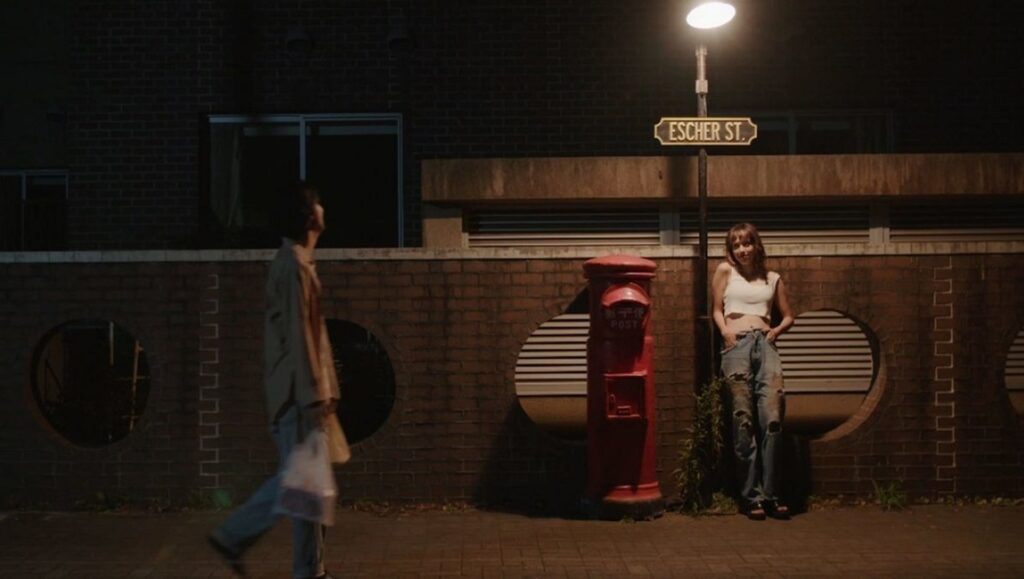Red Post on Escher Street is a powerful, insurrectionary refutation of the larger culture’s nihilistic star-gazing and obliteration of art.
Red Post on Escher Street, the most recent Japanese-language film from one of the island’s most prolific working directors, Sion Sono, asserts itself as a rather unusual work within the filmmaker’s 43-feature-film-spanning filmography. Indeed, the most interesting counterpoint to this new film is, in fact, the director’s 2019 Netflix-backed The Forest of Love. That work coalesced many of the humorous, sadistic, flamboyant, and even cartoonish tendencies of an entire career into an investigation of national trauma through an only somewhat fictionalized retelling of events surrounding the Kitakyūshū Serial Murder Incident (the film even enjoyed two cuts: one a 151-minute feature film version, the other a 278-minute expanded, serialized version). However, where Forest served as a study of performance and ruminated on the conceivable evils that lie within, Red Post on Escher Street pursues a similarly gonzo but undeniably more compassionate formal strategy of meta-cinematic reflection that explores aspects of national identity through a consideration of the love and pain that is at work in the production and reception of the filmic image and the performances it captures to express itself.
Red Post on Escher Street follows the production of a film in which a hugely successful indie director aspires to return to his roots by making a new picture that will rely on the skills of a cast he intends to be composed of entirely first-time performers. A blanket call is issued for auditions that, through a mix of seemingly mysterious coincidences and feats of happenstance, come to be attended by a gaggle of superfans, the recently bereaved, an abuse victim, and many more. It’s a formal premise that echoes the work itself, with Sono likewise relying on first-time performers to present a tale in which — through an increasingly chaotic, overlapping repetition of meetings and auditions that, in sum and contrast, echo at times something of the theater troupe scenes of Rivette’s Out 1 — the lives and troubles of these would-be actors is laid startling bare. This is all accomplished in a manner that stunningly presents, through the characters’ sincerity and absurdity, the very power possessed by any given life. Yet, in the final act, Sono closes off — both for these performers and his in-world stand-in — the chance for art and life to be presented as desired, as financiers and producers take over and recast the work with stars already in possession of fame and the promise of guaranteed box office, leaving the cast the audience has come to know to serve in bit parts and as extras. It’s here the film becomes insurrectionary and, in its final moments, even guerrilla, as Sono and these extras — to whom the work becomes an indisputable tribute — wrest control of the film away from the powerful usurpers and direct its attention toward the extras themselves, and, subsequently, to the pride and dignity found in any perfect embodiment of the mundane. It’s a startling thesis that rails against a culture’s nihilistic championing of stars and the exploitative mining of wounds necessary to achieve that very stardom, and yet, as the film reaches its close and its extras bring this message to the streets of a real-world Japanese city, both it and they are arrested.


Comments are closed.